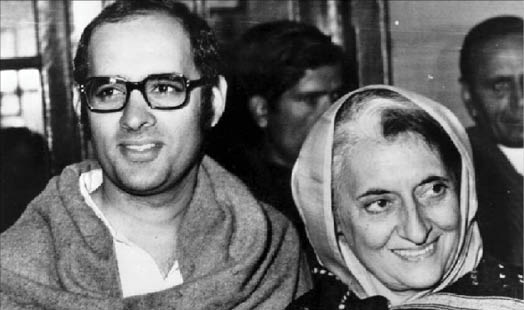I was Deputy High Commissioner in London at the time. B.K. Nehru was the High Commissioner. Drip by drip the excesses of the Emergency became known to us.
On 26 June 1975, Indira Gandhi dealt a lethal blow to Indian democracy. Emergency was declared, without her consulting her Cabinet or the Congress Working Committee. The text of the notification of the Emergency was sent to President Fakhruddin Ali Ahmed, who signed it without raising any objection. Her close advisers were her younger son, Sanjay, R.K. Dhawan and the Chief Minister of West Bengal, Siddhartha Shankar Ray.
What was the reason for inflicting the Emergency on India? The literature on the Emergency is vast, but today no one reads it. The reason given at the time for declaring the Emergency was that there was a conspiracy to get rid of Indira Gandhi. No proof was provided.
I was Deputy High Commissioner in London at the time. B.K. Nehru was the High Commissioner. Drip by drip the excesses of the Emergency became known to us. The British media went to town. It was impossible to “sell” the Emergency in the UK. Friends of India turned hostile. I did however succeed in persuading the Deputy Prime Minister, Michael Foot not to make public his criticism of the Emergency. He was good enough not to do so.
I did, however, write to the Prime Minister that, I knew what to say to our critics but did not know what to say to our friends. Lord Mountbatten, at a reception given by the Queen at Buckingham Palace loudly said to B.K. Nehru and me, “You have locked up all our friends.”
The Times, the most influential daily newspaper in Britain, carried a full page advertisement, severely attacking India Gandhi for what she has done. It was signed by dozens of well-known and famous leaders (all friends of India) of all political parties and by many celebrities. The Times refused to accept our response. We did manage a quarter page in the Guardian, paying a huge amount. But the signatories were mostly lightweights.
I used to review books for the Sunday Times and the New Statesman. Both asked me to discontinue.
Almost three-fourth of the Indian community was openly against the Emergency and critical of the Indian High Commission.
The Socialist International, of which George Fernandes was a member, left no stone unturned to condemn his near brutal incarceration. Jayaprakash Narayan’s name evoked much sympathy in political circles. We had no answers.
Within a couple of days, we got to know the names of the leaders arrested, J.P., Morarji Desai, Charan Singh, Ashok Mehta, L.K. Advani, Atal Bihari Vajpayee, Devi Lal, to name a few.
B.K. Nehru went to Delhi for consultations. He, in a subtle way, supported the Emergency. He even paraded the view that India should amend the Constitution, abandon parliamentary democracy and adopt a presidential system. He convinced Jagjivan Ram, Y.B. Chavan, Swaran Singh. Chief Minister of Haryana, Bansilal said, “Nehru Saheeb, get rid of all this election nonsense, if you ask me just make our sister (Indira Gandhi) President for life and there is no need for anything else.” Indira Gandhi did not fall for B.K. Nehru’s brainwave.
What outraged people most was the compulsory sterilization and the functioning of over-loyal chamchas of Sanjay Gandhi. Some are still around, wearing different feathers.
As a diplomat it was my duty to speak up for the Emergency. I did so very reluctantly and half-heartedly. Morarji Desai did not think so. But that is another story. Suffice it to say, we were allergic to each other.
****
In the film, My Fair Lady, Rex Harrison sings, “The rain in Spain, falls in the plain”. No rain has so far fallen on any plain. Every forecast of the Meteorological Department has gone wrong. In the first week of June, it was announced that monsoon would reach Delhi on 12 June. Delhiites were overjoyed. Nothing happened. It will be on the 15th that monsoon would reach the capital. No luck. 20th was the following date. No rain. 27th certainly. Huge disappointment.
Now the Met has given up offering forecasts. So we look up to heaven to end the searing heat and let monsoon loose.

